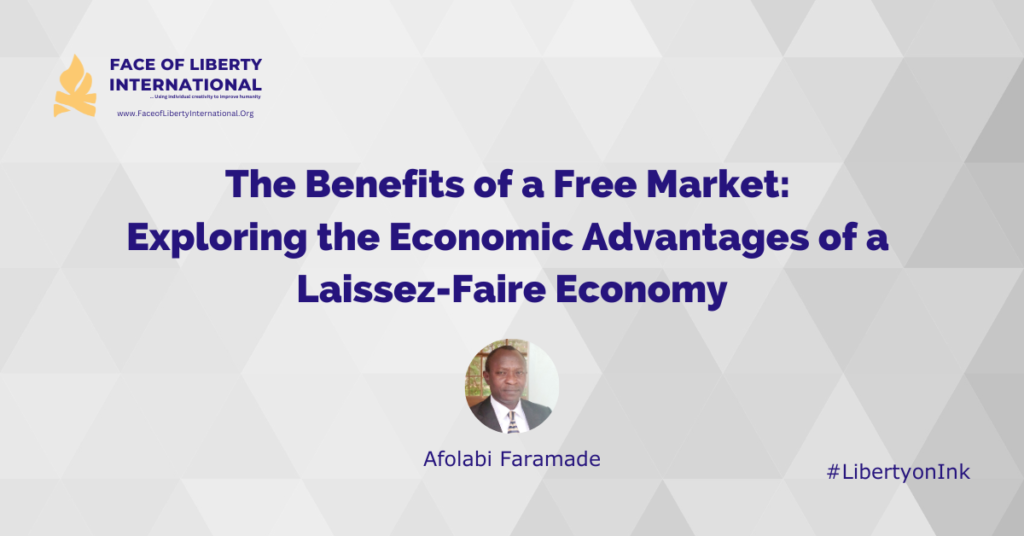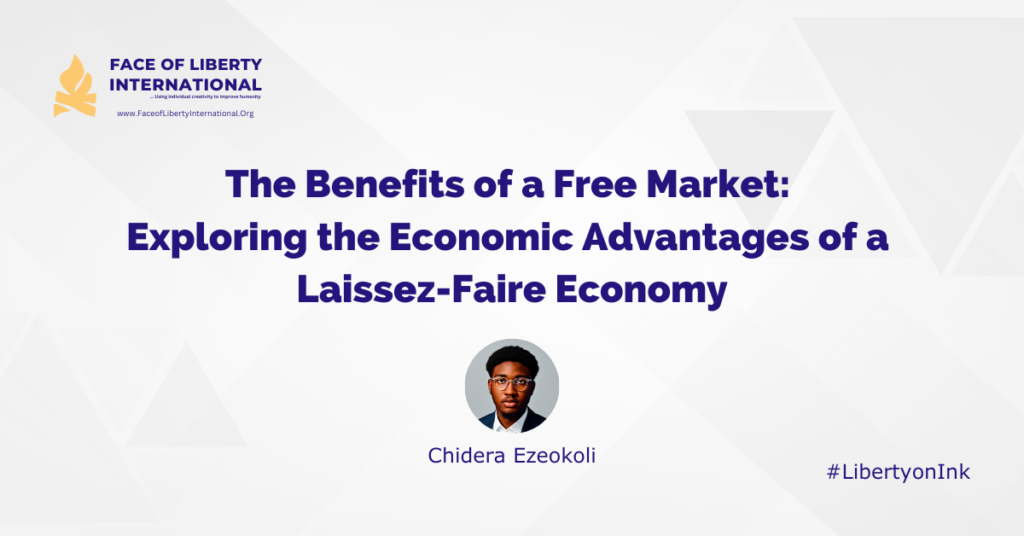Written by Afolabi Faramade
Free market economy refers to a form of economic system where businesses and consumers drive the economy with minimal or limited government intervention. The laws of demand and supply determine the price and quantity of goods produced in an economy. The 18th century Scottish philosopher, Adam Smith provided the free market definition. According to him, free market is when there is limited government control with the interplay of supply and demand determining the flow of products in the market. He originated the concept of “invisible hand” which automatically allocates resources to production based on demand and supply. Economic decisions are determined by the market itself which will always find a way to rebalance. Producers deliver the output that meets consumer demand.
MAIN FEATURES OF FREE MARKET ECONOMY
The characteristics of a free market or laissez-faire economy include the following:
- Ownership of private property and resources. The owners have complete control of their resources. The government does not control how resources are allocated or exchanged in the economy.
- Economic freedom or liberty including autonomy from government rules and regulations. One of the hallmarks of free market economy is the absence of bureaucracy and red-tape. Bureaucracy encourages corruption which distorts the economy.
- Consumer sovereignty.
- Competition based on innovation.
- Profit-making. In the theory of economic behaviour, people are driven by the profit-motive. Sellers provide products in the market depending on demand with the aim to make the highest possible profit.
- Voluntary exchange based on fair pricing. Sellers lower their prices to attract customers and boost sales. Increased turnover leads to higher profits or return on investment.
- Thriving financial markets and institutions. Financial markets are necessary for the existence of a free market. The presence of financial institutions provides the means of exchanging products and services
BENEFITS OF FREE MARKET OR LAISSEZ-FAIRE ECONOMY
The benefits of free market or laissez-faire economy are numerous. The inherent advantages of free enterprise economy have contributed significantly to the accelerated economic development of the industrialized nations in the world especially from the beginning of the industrial revolution. Most advanced economies in the world are based on free market system. These include United States of America (USA), United Kingdom, France, Germany, Japan, South Korea, Singapore, Hong Kong, Canada, Australia, Netherlands and New Zealand. The advantages of laissez-faire economy are as follows:
- Efficient allocation of resources.
- Healthy competition among economic actors which leads to innovation, increased efficiency and economic growth. Consumers are provided with several alternatives because the government does not restrict markets, allowing businesses from different countries to enter.
- Economic liberty. With little government regulation, buyers can spend their money anyway they choose. There is freedom in making economic decisions. People are free to participate in the global economy. There are no barriers. In other words, people enter into the market freely. Free market economy promotes free movement of capital and labour. This is one of the major factors behind the idea of African Continental Free Trade Agreement (AfCFTA) to promote economic integration among African countries, accelerate intra-African trade and boost Africa’s trading position in the global market.
- Free market economy promotes entrepreneurship and stimulates production. Emphasis is placed on research and development. Business owners enjoy the freedom to come up with new ideas based on consumers’ needs. They can create new products and
offer new services based on market demand.
Available evidence shows that there are many benefits of free market or laissez-faire economy which African countries can tap from. Free market encourages free trade and stimulates capital flow. It enables entrepreneurship to thrive, delivering significant improvements in living standards, Gross Domestic Product (GDP) and lifting people out of poverty. On the other hand, protectionism is detrimental to the overall growth rate of
the economy as it stifles initiative and hinders production.
REFERENCES:
Butler, E. (2007), Adam Smith: A Primer (London: Institute of Economic Affairs).
Butler, E. (2011), The Condensed Wealth of Nations (London: Adam Smith Institute).
Butler, E. (2013), Foundations of a Free Society (London: Institute of Economic Affairs).
Hayek, Friedrich (1941), The Pure Theory of Capital (Chicago: University of Chicago Press).
Hayek, Friedrich (1948), Individualism and Economic Order (Chicago: University of Chicago Press)
Popper, Karl (1994), The Open Society and Its Enemies (London: Routledge Classics)
Smith, Adam (1776), An Inquiry into the Nature and Causes of the Wealth of Nations (London: Adam Smith Institute)
Afolabi Faramade is a frontline journalist and advocate of free enterprise, civic rights and government accountability. He is Programme Director/ Editor-in-Chief of Journalists Against Poverty, a media advocacy organization which is committed to the United Nations Sustainable Development Goal of poverty eradication. He holds degrees in Public Policy and Journalism and has written extensively on economic liberty, free enterprise and entrepreneurship. He is an alumnus of African Students for Liberty and member of Civil Society Advocacy Group. He has won various awards of excellence in Journalism. His book, The People Pay The Price: Democracy and Economic Marginalization in Nigeria is in the pipeline.



